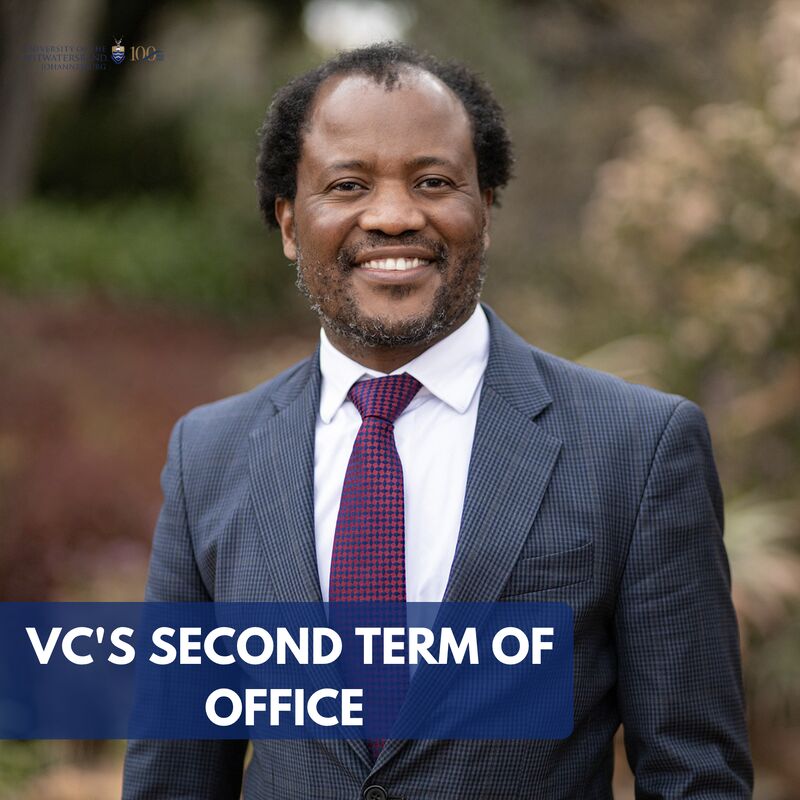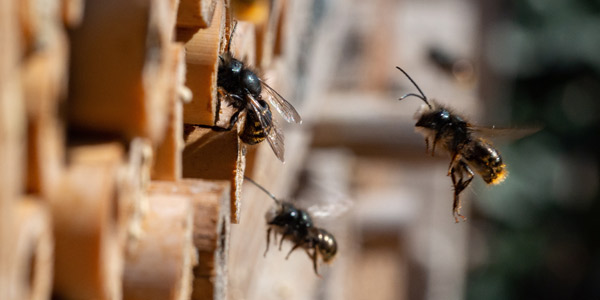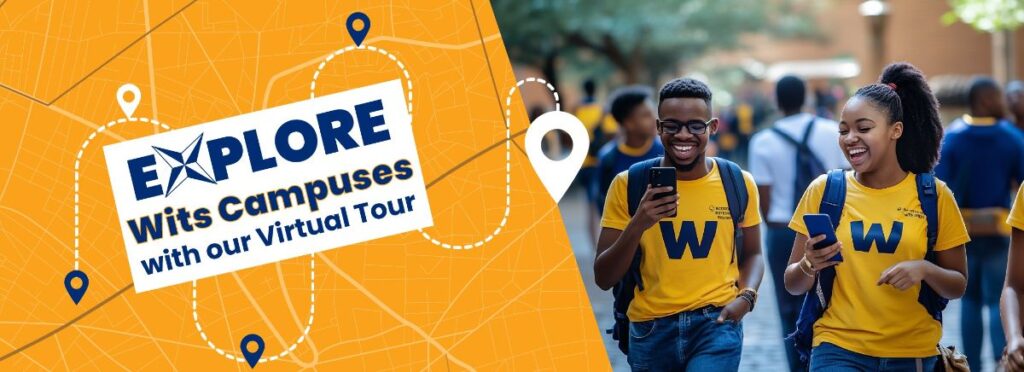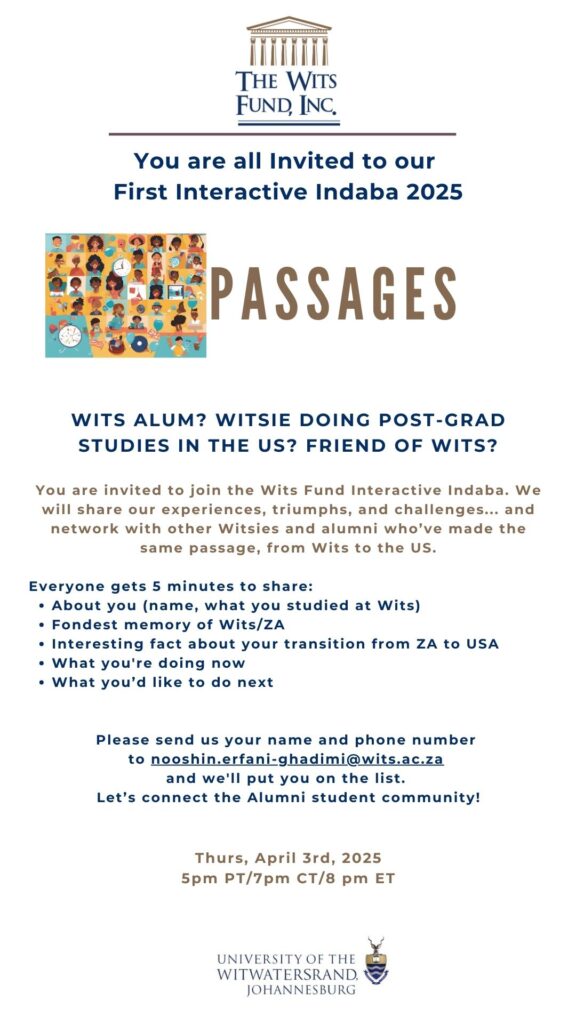March 2025
The US Witsie
PASSAGES, HOWEVER LONG THEY MAY LAST, WILL LEAVE YOU CHANGED. Are there things you wish you knew when you began your adventure, and moved to the United States? If so, we would love to hear from you, in particular if you carried out post-graduate studies here, after your Wits degree. You are all invited to join the first Wits Fund Interactive Indaba 2025 (see the invite below for details). We will share our experiences, triumphs, and challenges… and network with other Witsies and alumni who’ve made the same passage, from Wits to the US.
WITS VC, PROF ZEBLON VILAKAZI, UNANIMOUSLY REAPPOINTED FOR SECOND TERM

The Council of Wits University agreed to appoint Professor Zeblon Vilakazi as Vice-Chancellor and Principal for five more years.
His second and final term will run from 1 January 2026 to 31 December 2030. This follows a comprehensive consultation process with various constituencies that make up the Wits community.
“On behalf of Council, we would like to congratulate Professor Vilakazi on his appointment, and we are confident that under his leadership, Wits will grow from strength to strength over the next five years,” says Mr Isaac Shongwe, Chairperson of the Wits University Council.
This appointment follows a successful first term, during which Vilakazi strategically positioned Wits in the national and global higher education landscape through both his ‘moonshot’ vision and the imperatives outlined in the Wits 2022 vision and the Wits 2033 Strategic Framework, which has resulted in the positive performance of the institution.
“I am honored and grateful to the University community for the confidence and trust that they have placed in me to continue to lead this great institution, a national treasure, that makes a real difference in society,” says Vilakazi. “Over the next few years, we will continue to work towards our 2033 goals, to invest in the academic project, to create an environment that fosters innovation, and to ensure the wellbeing of staff, students, and members of the Wits community.”
Read more here.
FIRST 2025 INTERACTIVE WITS FUND INDABA
BREAKING BARRIERS: From top matriculant to Wits Law student, Kabelo Motaphi Kekana is redefining what’s possible.
Kabelo Motaphi Kekana, a first-year law student at the University of the Witwatersrand, is demonstrating that disability is no barrier to success. As South Africa’s top-performing matric student with special education needs last year, he reflects on his achievements: “At first, I didn’t expect it, but my friends and family believed in me. Their confidence and support helped me persevere. They stood by me throughout the year, and because they trusted me, I learned to trust myself too.”
BEES, BIRDS, AND BATS PART OF INVISIBLE WORKFORCE

Bees, birds, and bats are part of an invisible workforce that supports humanity.
Since the beginning of time, humans have recruited animals and given them jobs. However, not all animals are trained or tamed for work. Until recently, a few of these animals were going about their business in typical Joburg gardens, mostly unnoticed.
That was until Dr Chevonne Reynolds in the School of Animal, Plant and Environmental Sciences (APES) at Wits came up with an idea to gauge biodiversity in a city that is undergoing rapid urbanization. In particular, she wanted to see how some of the world’s best pollinators – solitary bees – were getting on.
Solitary bees are the lesser known of the bee super family but there are many of them around. It is estimated that there are nearly 1,300 bee species in South Africa and of those, only two are the classic social honeybees.
“Pollination services, and insect decline are a big issue. And 70% of all our crops are pollinated by insects, mostly bees,” explains Reynolds. “The problem we have when it comes to insect work is that insect populations haven’t been well documented, and so the data are quite patchy.” The status of the world’s pollinators is a cause for concern for scientists, because if bees stop moving pollen from plant to plant to facilitate fertilization, agriculture will collapse.
For her project, Reynolds enlisted the help of some 350 citizen scientists, each one of whom was given a free bee hotel to set up in a garden. Each bee hotel, a small wooden box, has little holes drilled into it in which solitary bees take up residence and rear their young.
All the citizen scientists had to do was take photographs and send them to Reynolds and her team. From the sealed-up holes, scientists could work out the occupancy rates of the hotels and from there get an idea of bee abundance in the city of Johannesburg. “It was a biodiversity indicator of sorts,” says Reynolds.
Read more here.
Wits Virtual Tour

See Wits University in Action! Want a closer look at life on campus? For a Virtual Tour of Your Old Haunts, Click here.
As we feel gratitude for the blessings in our lives, one way to pay it forward is through making an impact in a person’s life that will uplift them, and their families, for generations to come.
DONATE HERE
WATCH: WITS’ LATEST NEWS IN SIXTY SECONDS – In this episode, we celebrate Wits Professor Eunice Nyamupangedengu, honoured as an Afretec Inclusion Champion for driving diversity in STEM. Wits alumna Harshila Dulabh takes the helm at Business Intelligence Services, leveraging data for strategic decision-making. Wits staff showcase how consistency and community make fitness a priority. Researchers advocate for a 20% sugar tax to combat obesity and reduce health costs. Plus, Open Society Foundation’s president Binaifer Nowrojee redefines philanthropy in a thought-provoking WBS lecture.
Read the full stories here.
Other ways to Give
Corporate Matching Gifts
To include The University of the Witwatersrand Fund Inc (#13-390 2012) in your employer’s matching gift program, please follow your company’s corporate matching guidelines. Donations can be sent to:
The University of the Witwatersrand Fund, Inc.
PO Box 7101
New York, NY 10150
